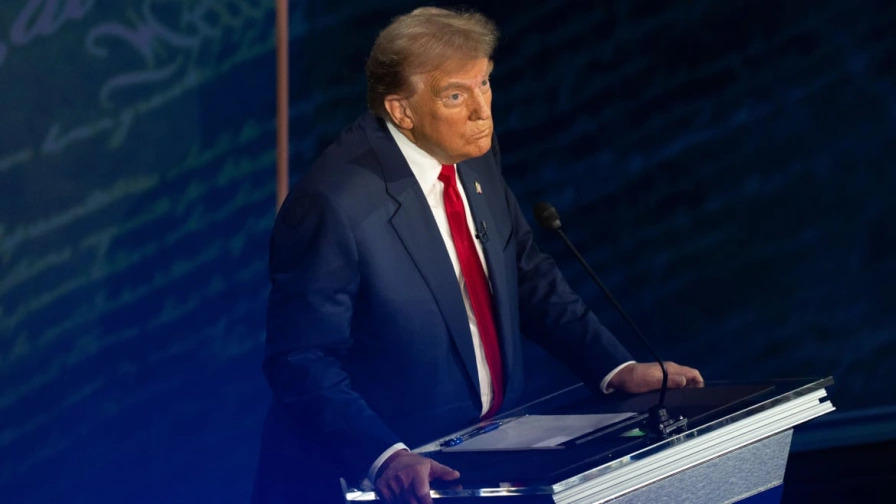In a politically charged atmosphere, the United States finds itself grappling with deep divisions that threaten the very fabric of democracy. Recent discussions have centered around a troubling video that has emerged, prompting fans and critics alike to question the mental state of former President Donald Trump. This video, coupled with insights from a new documentary titled “Untruth,” sheds light on the psychological underpinnings of Trump’s behavior and the phenomenon of “Trumpism.”

The documentary’s director, Dan Partland, emphasizes that the current political climate is not merely a result of Trump’s actions but rather a manifestation of broader societal issues. As he notes, Trump represents an “epiphenomenon”—a symptom of a much larger problem rooted in misinformation, propaganda, and the manipulation of public perception. The media’s failure to adequately address Trump’s mental health and personality traits has allowed this phenomenon to flourish, leading many to question the integrity of American democracy.
Partland argues that Trump’s behavior can be characterized by “malignant narcissism,” a personality disorder that not only affects Trump himself but also influences his supporters. This psychological condition, marked by a lack of empathy and a tendency to manipulate others, has profound implications for understanding why so many Americans are drawn to his leadership. The documentary “Unfit,” released in 2020, was one of the first to explore these psychological aspects, and its follow-up, “Untruth,” delves even deeper into the ramifications of Trump’s influence on American society.
The film features interviews with mental health professionals who analyze the psychological appeal of Trump and the authoritarian tendencies that he has activated in his followers. Partland highlights the dangers of this “pandemic of mass delusion,” where individuals are willing to overlook blatant evidence in favor of a narrative that aligns with their emotional needs. This phenomenon is not unique to Trump; it reflects a broader trend in which authoritarian figures exploit societal fears and frustrations to gain power.
One of the most striking points raised in the documentary is the idea that Trump’s supporters are not merely victims of misinformation but are also seeking validation for their feelings of disenfranchisement. Partland explains that Trump provides a sense of pride and status to his followers, promising to elevate them by denigrating others. This dynamic is reminiscent of historical ethnonationalist movements, where leaders rally support by appealing to a sense of shared identity and grievance.
The film also addresses the alarming rise of authoritarianism in contemporary politics. Partland posits that Trump’s appeal lies in his ability to resonate with individuals’ latent authoritarian tendencies, offering a strongman figure who promises decisive action in times of uncertainty. This connection fosters a bond between Trump and his followers, as they feel validated by his rhetoric, even when it lacks substantive policy solutions.
Moreover, the documentary critiques the notion that Trump’s policies will materially benefit his supporters. Instead, it suggests that his platform is more about maintaining a sense of cultural dominance than addressing economic disparities. Many of his supporters may not have firsthand experience with the issues he exploits, such as immigration, yet they are drawn to the emotional satisfaction of having someone voice their frustrations.
As the political landscape continues to evolve, the documentary serves as a vital resource for understanding the psychological mechanisms at play in Trump’s rise to power. It highlights the urgent need for open discussions about mental health in politics and encourages viewers to reflect on the broader implications of authoritarianism in American society.
In conclusion, “Untruth” offers a compelling examination of the psychological dimensions of Trumpism, urging audiences to confront the uncomfortable truths about the current political climate. By exploring the intersection of mental health and politics, the film challenges viewers to reconsider their understanding of democracy and the forces that threaten its integrity. As the nation navigates these turbulent waters, it is crucial for citizens to engage in informed discussions and to seek a path toward healing and unity.




